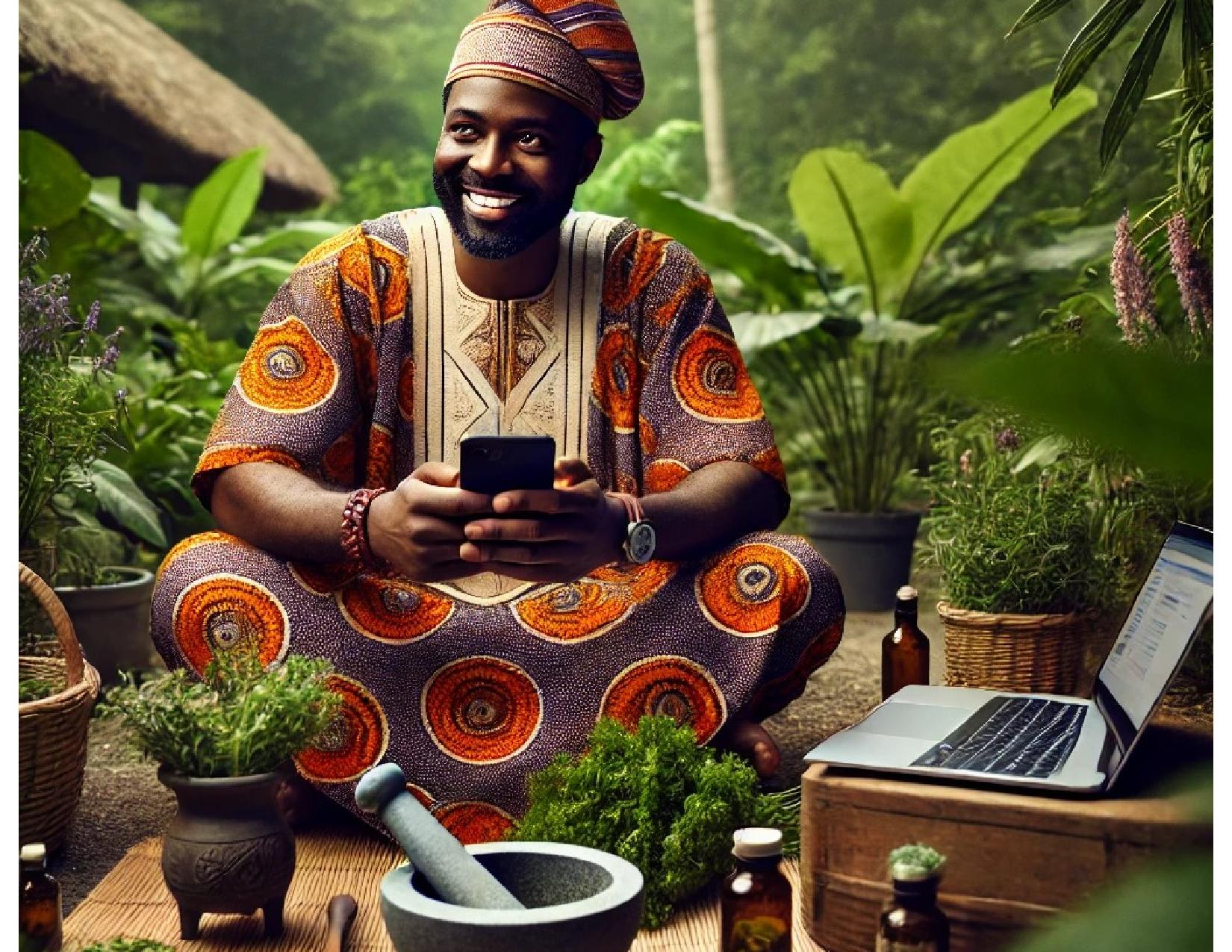![Traditional Medicine practitioners on social media make unverified claims [DailyPost]](https://ocdn.eu/pulscms/MDA_/2613694810215ea8b86c67a7ecf5efdb.jpg)
Regulatory institutes have their work cut out for them, with the rise in unchecked claims on social media by unverified practitioners.
Potential health crisis looms when traditional medicine practitioners are left to run amok on social media with little to no regulatory checks.
When 32-year-old Kolapo discovered that he had stage three haemorrhoids, he was devastated. He underwent lifestyle changes for two years until his surgery—and even after it. But before he finally resorted to having the hemorrhoidectomy done, he had tried several herbal remedies, including a popular brand associated with aphrodisiacs on Instagram.
“Nothing worked. Not even the herbal concoction I bought from this very popular brand on Instagram. I spent ₦25,000 to buy the product and this was after I watched famous content creators in a skit advertising it as the complete cure for pile. The claims they made were, of course, exaggerated but I was completely convinced at the time that it was genuine. Why else would these creators leverage their brand that they worked so hard to build if the product was inauthentic?” he told Pulse Nigeria.
The culture passed down
While Kolapo’s experience may be similar to other people who have fallen prey to the bogus claims of traditional medicine practitioners in promotional online materials, the fact remains that herbal mixtures have been a regular staple healthcare solution from time immemorial in Africa.
“Traditional medicine works. I have used orthodox drugs in the past for some serious ailments but they did not work at all because I kept experiencing the symptoms as I did before starting any drug. I had to go to the market, buy some herbs and leaves and boil them together so that I can get complete healing,” Kehinde, 50-year-old mother-of-five shared with Pulse.
Writer and content creator, Anita also had this to say, “My sister ordered a herbal drink from her friend in Enugu to treat an infection, including malaria and typhoid. It cost ₦17,000 but it did not work at all. It did nothing. Zilch. Instead it seemed to have brought the symptoms to the surface for her. Now she has to treat it with Western medicine.”
And the reason for this is not far-fetched. These herbal mixtures promise complete cure in addition to easy accessibility and affordability. “My sister who has now sought Western medicine for the treatment of malaria, typhoid, and infection (which she tried to cure with the herbal drink but failed) was given a quote of ₦40,000 for injections and drugs at the hospital,” Anita further shared.
More recently, government agencies like the Department of Traditional, Complementary and Alternative Medicines of the Federal Ministry of Health & Social Welfare and the Lagos State Traditional Medicine Board have also sprang up. Similarly, practitioners have joined forces to form unions like the Traditional Medicine Practitioners Association of Nigeria and Association of Integrative Medicine Practitioners.
However, these bodies have failed to meet expectations with regard to comprehensive and strict regulatory policies for the assessment of production quality and testing, and most especially, verification of claims made by practitioners using social media to market their products.
The problem
While they have recorded a few physical victories in terms of shutdowns and sanctions, the problem remains that practitioners have been allowed to engage in a free-for-all on social media for far too long. In a brief chat with Pulse, Dr Adebisi Olusegun of the Association of Integrative Medicine Practitioners, revealed that majority of them do not have the licence to practise the trade. “I can boldly tell you that most of the people who advertise unverified herbal remedies or traditional medicine on social media are not real—about 90% of them are not. Some of them do that purposely because of money while others inherited the trade from their great grandfathers,” he said.

Thousands of people have bought and ingested unverified herbal products from social media only to end up with deep regrets due to their inefficacy or worse, dangerous side effects. “I had an encounter with someone who bought an aphrodisiac on social media. After using it, he had a prolonged erection, what is known in medical terms as priapism. He was in pain for almost one week before he sought medical attention. Mind you, there are toxicological concerns too. Some of these products can have adverse effects which may affect vital organs such as the liver, heart and kidney,” Patrick Iwelunmor, Editor, Pharmanews and Gatefield Pro-health Journalism Fellow shared with Pulse.
“I am aware that the indiscriminate use of the social media space by traditional medicine sellers can be misleading and in fact harmful. This is because most of their claims are unsubstantiated. Secondly, there is the problem of dosage and administration which could have been settled if they were NAFDAC registered. Any traditional medicine not registered by NAFDAC is considered fake and substandard,” he added.

“They will not tell you the truth. They will give you the impression that even without changing your lifestyle, if you take their herbal medicine, it will solve your problem. And it is not true. The whole idea of going for surgery is so scary for so many people that they will keep trying different herbal remedies hoping that it will work. And these herbal practitioners know that their medicine cannot cure these conditions, especially at a later stage. Maybe at the initial stages of the ailment, it can work. But when a person’s pile (haemorrhoids) has entered stage three or a woman’s fibroid has become so big enough that you can even feel it, it cannot work. The worst part is that they will keep giving the impression that there is no side effect and their product can cure it. But in reality, that is not true. Do you know what that is? It’s called false advertising,” Kolapo concluded.
What can be done
Relevant agencies need to enforce thorough regulation on false advertising by herbal medicine practitioners. They should not be allowed to make absolute claims, especially on social media. Stiffer sanctions should also be applied.
“I share the view that the social media space should be seriously regulated for those marketing traditional medicines. Even in the conventional pharmaceutical product marketing, you cannot advertise or market your products without getting approval from NAFDAC and the Advertising Regulatory Council of Nigeria (ARCON). The same system should be adopted for social media marketing of traditional medicines. Medicine is highly scientific and deals with empirical knowledge. That something worked for me does not mean it would work for everyone. While orthodox medicine is highly based on scientific procedure, most traditional medicine sellers base their claims on speculation. Hence, the reason we have to be very careful,” Iwelunmor noted.






















